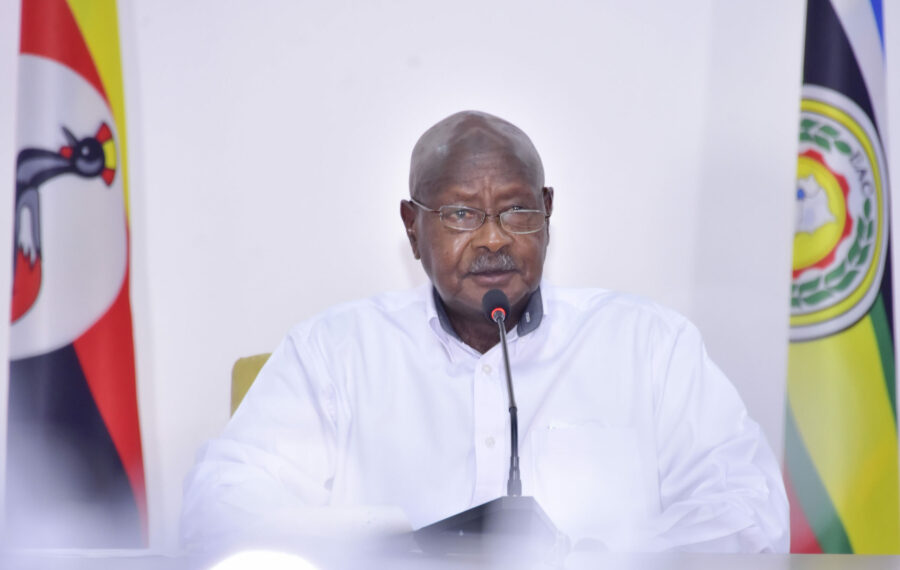President Yoweri Museveni has declined to sign a bill that parliament had passed, intending to inflict harsh punishments on anybody found guilty of homosexuality, including life imprisonment for repeat offenders.
Human rights advocates who had vehemently opposed the measure, contending that it was discriminatory and infringed the rights of LGBT people in Uganda, applauded President Museveni’s decision.
The President said that there was no need for the measure because existing laws already make homosexuality a crime, citing worries about the damaging effects it would have on Uganda’s relations with the international world.
A major win for LGBT campaigners in Uganda and around the world is marked by Museveni’s action, which effectively prevents the bill from becoming law.
Human rights groups and Western nations had vehemently opposed the contentious bill and vowed to cut off help to Uganda if it passed.
According to Mr. Museveni, homosexuals who have not engaged in homosexual behavior should not be punished, even though it is obvious that society does not support gay behavior or deeds.
“The Bill should include a provision that clearly states that for avoidance of doubt, a person who is believed or alleged or suspected to be a homosexual who has not committed a sexual act with another person of the same sex does not commit an offence,” the President told Speaker of Parliament Anita Among in an April 25 letter, adding, “This distinction must be clearly articulated.”
‘Ambiguous’ clause
According to Article 91 of the Constitution, the President has 30 days to give his or her consent to a bill before returning it to Parliament for revision or notifying the Speaker in writing that he or she declines to do so.
After back-to-back talks with lawmakers to resolve differences and come to an agreement, Mr. Museveni returned the Bill. Additionally, Mr. Museveni disapproved with the clause requiring anyone to report any gay activity.
The President thinks that this needs to be changed or removed so that it covers child protection. The clause made failure to report a crime and imposed a fine of 5,000 currency points (Shs100m) or a six-month prison sentence.
The Deputy Attorney General, Mr. Jackson Kafuuzi, addressed this clause last Friday and claimed that it was too unclear and would provide a path for the law to be challenged in court, something the current administration is seeking to prevent. On a technicality, the Constitutional Court invalidated a similar measure in 2014.
The legislation should support the rehabilitation of people who were unwittingly recruited and engaged in homosexual actions that were not aggravating, according to another proposal made by President Museveni. The set shouldn’t be penalised, he continued.
Currently, the court has the option to order the delivery of social assistance for the aim of rehabilitation after a conviction.
Mr. Museveni suggested designating specific medical facilities or other organizations for the purpose of rehabilitation. He stated that the administration will take into account any potential costs that this may have for the Consolidated Fund.
What’s next after Museveni’s refusal to sign the bill
Even if President Museveni does not sign the bill after its second enactment, it will nonetheless become a law. People found guilty of aggravated homosexuality will be executed if the President only makes the amendments the President has suggested to the bill. In other countries, gay actions can result in a 20-year prison sentence.
According to the Children’s Act, children who are found guilty of practicing homosexuality face a sentence of three years in prison with options for rehabilitation. A person found responsible for encouraging homosexuality might spend 20 years in prison.
